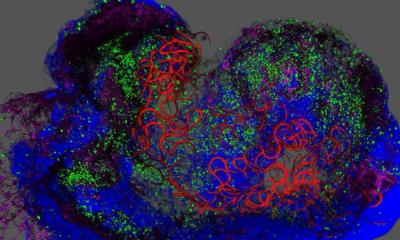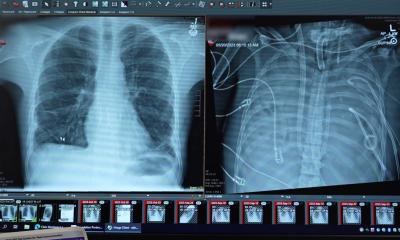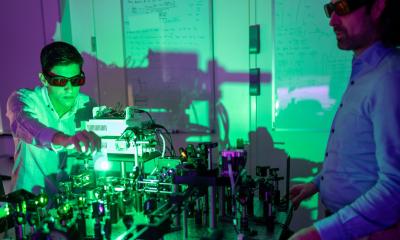Kidney donors: a long-term follow-up
What is their quality of life after donation?
By A Chkhotua, T Pantsulaia*, N Maglakelidze
at the National Centre of Urology, Tbilisi, Georgia

Kidney transplantation (Tx) is a treatment of choice for patients with end stage renal disease, providing the best results and high quality of life (QoL). However, donor shortage remains the main problem in organ Tx. Today, only a few possible ways to enhance the organ supply are considered. One of these is the increasing use of living donor organs. It has been shown by numerous studies that kidney donation does not cause serious medical problems such as deterioration of kidney function, arterial hypertension or proteinuria. However, it should not be forgotten that a donor is not a patient; this is a healthy person voluntarily donating the organ. The decision-making process is complex for every donor and analysis of their postoperative health and QoL is a matter of utmost importance. Only limited reports examine the QoL issues in living donors.
The QoL concept is well-known in clinical medicine and frequently applied to assess surgical or other treatment modalities to determine their therapeutic success. It is a wide concept, comprised of four main aspects of human well-being: physical (health, mobility, somatic comfort etc.), psychological (happiness, satisfaction, tranquillity, etc.), social (family relationships, financial well-being etc.) and spiritual (sense of life, religious beliefs etc.). Several surveys and questionnaires have been used for this purpose. The Short-Form 36 (SF-36), Giessen Subjective Complaints List-24 (GBB) and Zerssen’s Mood-Scale (Bf-S) are internationally validated and frequently used questionnaires.
Differences in educational, cultural and socio-economic backgrounds may influence the QoL of donors in different countries. Previous studies have shown that donors in the USA, Sweden and Germany scored better than the general healthy population in several QoL items. Results from these studies provide evidence that donor QoL should be at least comparable, or even better than, that of the general population.
We evaluated the QoL of 45 kidney donors (Group I) and compared it to: 120 age/sex matched healthy individuals (Group II); and 40 patients who underwent nephrectomy due to: renal tumour (80%) and hydronephrosis (20%) (Group III). All the donors and patients were operated on at our institution. The SF-36, GBB and Bf-S questionnaires were mailed, e-mailed, or handed to the donors and patients. All the respondents were given some short information about the goals and objectives of the study. To ensure maximum objectivity in the results, the evaluation procedure was completely anonymous. All respondents were free of any charges related to the filling or sending in of questionnaires.
In five out of eight items the donors scored better than the controls and patients. For three of them (Social function, Bodily pain and Vitality) the difference was statistically significant. The Bodily pain and Vitality indexes of the controls were higher compared with those of the patients. The GBB scores of the donors were higher than those of the controls and patients; however, these differences did not reach significance. The mood analyses performed by the
Bf-S questionnaire have shown significant differences between the groups in favour of the donors.
In conclusion, the donors should be educated about the extent of psychosocial impairment that might occur in the postoperative period. They should be monitored for both physical and psychosocial outcomes of the donation. Further, prospective studies are needed to facilitate potential donors’ understanding of the complex issues related to the organ donation.
* T Pantsulaia: also at the Georgian Association of Psychology
01.03.2008





